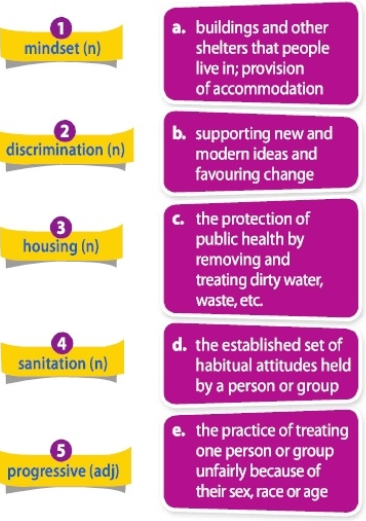Question
Tự luận
1. (Trang 25 - Tiếng anh 12): Look at the following statistics about urbanisation and then answer the questions.
(Xem số liệu thống kê sau đây về đô thị hóa và sau đó trả lời các câu hỏi.)
• In 1900, two out of every ten people lived in urban areas.
(Năm 1900, hai trong số 10 người sống ở khu vực thành thị.)
• In 1990, four out of every ten people lived in urban areas.
(Năm 1990, bốn trong số 10 người sống ở khu vực thành thị.)
• In 2010, five out of every ten people lived in urban areas.
(Năm 2010, năm trong số 10 người sống ở khu vực thành thị.)
• In 2030, six out of every ten people will live in urban areas.
(Năm 2030, sáu trong số 10 người sẽ sống ở các khu vực thành thị.)
1. What trends do you notice?
(Bạn chú ý xu hướng mới gì?)
2. What do you think the effects of urbanisation are?
(Bạn nghĩ những ảnh hưởng của đô thị hóa là gì?)
Bài làm:
Read more: Unit 2 lớp 12: Listening trang 25
Verified Answer
1. Urbanisation rate has been increasing steadily over the past 30 years./ ln 2030, nearly two thirds of the population will live in urban areas.
(Tỷ lệ đô thị hóa ngày càng tăng đều đặn trong 30 năm qua. /Đến năm 2030, gần hai phần ba dân số sẽ sống ở các khu vực đô thị.)
2. Urban areas become very crowded. A lot of people in the cities are not able to find jobs. Some people have to live in slums with poor sanitation.
(Khu vực đô thị trở nên rất đông đúc. Rất nhiều người ở các thành phố không thể tìm được việc làm. Một số người phải sống trong các khu ổ chuột với tình trạng kém vệ sinh.)
Related questions
Câu 3:
2. (Trang 25 - Tiếng anh 12): Match the words with their meanings.
(Nối từ với nghĩa của chúng.)
